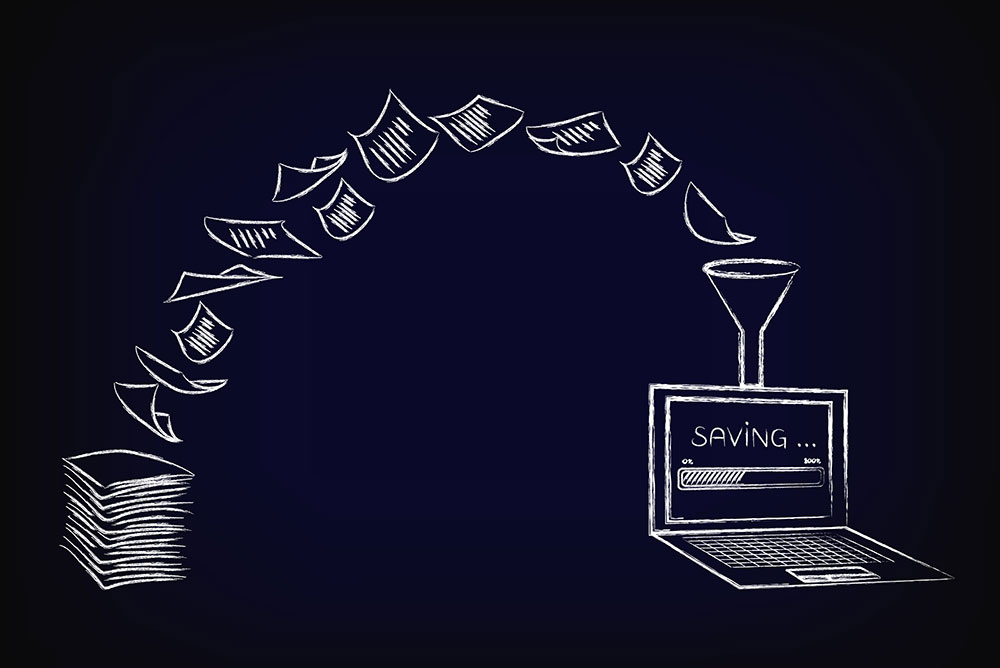Publié le 05/07/2022, mis à jour le 06/07/2022 à 09:25 Tomorrow’s standards will be machine-readable

AFNOR is leading a long-term project aimed at allowing each and every one of its users to read voluntary standards on their in-house machines and software. This digital transformation project has been given the sweet-sounding acronym of MARSS.
Over the years, the voluntary standards in AFNOR’s collection have consistently landed on your desk in paper format. Now they are available as PDF documents or incorporated into a subscription-based intelligence solution, such as CObaz. In other words, their content has been tailored to human users. In the business world and especially in industry, a pair of human eyes and a brain are required to scan through the document before work can start on reprogramming all the tools and software to take account of the specifications featured in the new standard.
However, the people using standards are justified in wanting to skip this step. Basically, they would like to see standards that can be read and integrated directly into their in-house systems. This means that they must be completely digitized before they can be incorporated into the user’s business software. Time savings in the pipeline, but a gigantic project! Such is the challenge facing the MARSS project, which stands for “Machine Applicable Readable Standard and Standardization“. The idea is to cut out the manual side of the process and its potential errors, and instead transform the standard into a 100% digital object.
Change in processes and procedures
All economic stakeholders stand to benefit from this initiative, especially sectors involved in manufactured products, such as the construction, automotive, energy, aviation, railway and electrotechnology industries. Analytical laboratories, robotics, artificial intelligence and marketing also have much to gain. The project could also be applied to the major generic management standards, including ISO 9001 for quality and ISO 14001 for the environment. We can also see a future where machine tools are capable of directly integrating the standards relating to the circular economy, particularly eco-design. Therefore, there are no exclusions when it comes to the aspects covered.
The wheels of revolution are in motion at AFNOR. This initiative is clearly customer-oriented, since easier-to-use content equates to a greater competitive advantage. That is all very well, but such a revolution in the voluntary standardization world is anything but a walk in the park.
“It means that we need to review how we design and build standards,” explains Étienne Cailleau, Digital Transformation Project Manager at AFNOR. “It affects the way that we create and disseminate standards, and also how we update them, and the process could quickly gain pace.” Note that all standards feature regular updates (every five years on average) to reflect the latest technical innovations and new market requirements.
Étienne Cailleau wants to set minds at rest: Technically speaking, it’s not that hard to develop,” he says. “We’ll provide access, and then the software can pick what it needs from the contents of the standards.” However, it involves going back to the drawing board and overhauling the business model at the beginning of the standardization cycle, bearing in mind that a consensus must be obtained from the stakeholders for any update to a standard. This is an extremely wide-ranging change, but AFNOR is fully committed to the process alongside European and international organizations.
Three questions for Etienne Cailleau, MARSS Project Manager at AFNOR
Whats is your role in the MARSS project?
 I’m responsible for leading the digital transformation strategy for two of the AFNOR Group’s entities affected by the MARSS project, namely AFNOR Standardization and AFNOR Publishing. We need to develop a roadmap, gain a clearer understanding of the problem and its challenges, define the organization, establish the priorities and work out the steps. We’re taking an in-depth look at our activity. I’m expected to allow everyone to visualize the benefits of this radical change.
I’m responsible for leading the digital transformation strategy for two of the AFNOR Group’s entities affected by the MARSS project, namely AFNOR Standardization and AFNOR Publishing. We need to develop a roadmap, gain a clearer understanding of the problem and its challenges, define the organization, establish the priorities and work out the steps. We’re taking an in-depth look at our activity. I’m expected to allow everyone to visualize the benefits of this radical change.
When will the project be implemented?
As soon as possible! Before 2030 would seem to be essential. AFNOR is going the extra mile to deliver an increasingly sophisticated set of services to its customers, but such a profound change will take time.
What headway has been achieved by the other standardization bodies in Europe and worldwide?
France, meaning AFNOR, is one of the frontrunners in leading this project. The countries that have made the most progress include Germany (DIN, DKE), Norway (SN), the United Kingdom (BSI) and the Netherlands (NEN). Outside Europe, the United States, Japan and China are also involved. But Germany is the country that has made the greatest strides. Therefore, we’re planning to work with DIN and DKE, and potentially other European organizations, to develop the digital infrastructures needed to deliver this new content.
Crédit photo : © AFNOR/DR

